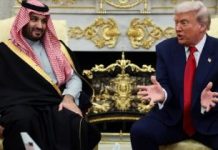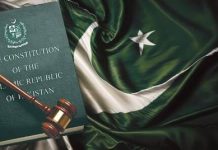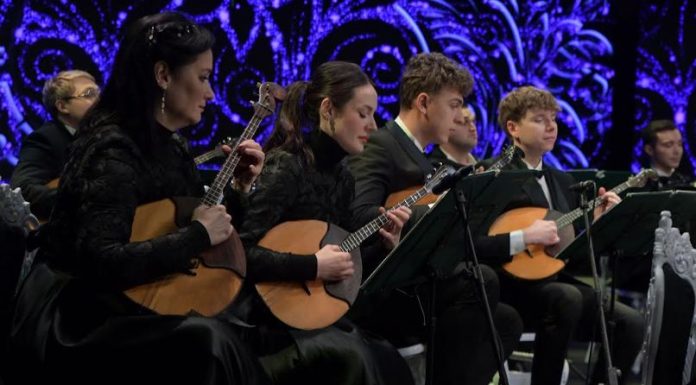The D-8 Summit held in Islamabad on November 22, 2012 adopted the Charter, Global Vision and Islamabad Declaration, which would go a long way in the history of the organization. Leaders from D-8 in their statements felicitated Pakistan on assuming the chairmanship and reposed their confidence in Pakistan’s leadership. In a special ceremony following the Summit meeting, the leaders witnessed signing of the Charter by their Foreign Ministers, which in itself was a landmark event not only in the history of D-8 but for Pakistan as well.
Iranian President Mahmoud Ahmadinejad‚ Indonesia President Susilo Bambang Yudhoyono‚ Nigerian President Goodluck Jonathan‚ Turkish Prime Minister Recep Tayyip Erdogan‚ Malaysian Deputy Prime Minister Haji Muhyiddin Mohammad Yassin‚ Egyptian Vice President Mahmoud Mekki and Advisor of Bangladeshi Prime Minister Dr. Syed Ali Gowher Rizvi attended the Summit.
In his welcome statement, President Zardari rightly said that the Islamabad Summit would make a difference in cementing collective actions and achieving long term objectives. He said that the presence of D-8 leaders in Islamabad reflected their collective determination to benefit from the D-8 and to support Pakistan.
He urged the democracies of the D-8 member countries to work for the better future of one billion people in the D-8 community to realize their collective potential adding D-8 is an ideal vehicle for achieving the agenda of emerging Muslim nations.
The President noted that the D-8 organization had huge untapped potential. He encouraged free flow of goods, peoples and finances. President Zardari said the signing of the Charter and Global Vision will consolidate D-8 cooperation. He proposed the setting up of trade and development banks and engaging in barter trade wherever possible.
A key focus of the Summit was promotion of trade between D-8 countries. A number of trade and business events were held on this occasion. The Prime Minister inaugurated the Trade Exhibition on 19 November and D-8 Business Forum on 20 November, attended by businessmen and entrepreneurs. The Governors of D-8 Central Banks also held a meeting and issued a communiqué on financial and monetary cooperation.
In a nutshell, the summit was indeed a milestone however there are some hard facts that should not go unattended and unaddressed. The Prime Minister of Bangladesh and President of Egypt chose not to come to Islamabad to attend the summit. BD prime minister refused to come at the time when our special messenger went to her to woo her to the conference. Nevertheless Egyptian president Morsi’s last minute refusal came as a sheer surprise for everybody. His post-summit engagements would also include a state visit to Pakistan — which would have been first visit at the presidential level after 52 years. Egyptian president Gamal Nasir came to Pakistan in 1960.
Not only this, the government had to cancel the joint session of the parliament. President Morsi was scheduled to address the joint sitting. No-show of the Bangladesh prime minister makes sense because as compared with Khalida Zia, it has perhaps never been on her agenda to cultivate friendly relations with Pakistan. Moreover, it is said about her she is more towards India rather than Pakistan when it comes to cultivation of bilateral relations.
President Morsi’s appearance nonetheless could have made a difference. Mr. Morsi can still make amends by undertaking a state visit to Pakistan sooner rather than later. It will surely bring both countries even closer.
Despite all odds, Pakistan government needs kudos for holding such an important event, though it could have done it in even a better manner by holding it after the month of Muharram. Some internal and external factors tried their best to scuttle the event in one way or another, especially in the form of bomb blasts. Particularly the blast in Rawalpindi ahead of the summit was not a sectarian act by all means. There are enough intelligence reports available now that the blast was planned to terrorise the delegates.
All said and done, Pakistan should draw some lessons from this meet. Ostensibly, the event went quite well, at the same time we have to plug and address shortcomings that came to fore in this exercise. Needless to say, we have to develop and expand hotel industry in the Capital city for there was not enough space in two big hotels to accommodate to the conference delegates. It does not look nice when the host is not able to provide the guests with proper accommodation.
This is not a big task because a number of big hotel chains have already purchased properties in Islamabad the only thing is that they want security and level playing field. This is in no wise is a wrong demand. An immediate response is needed from the government.











